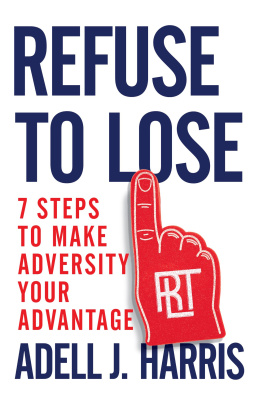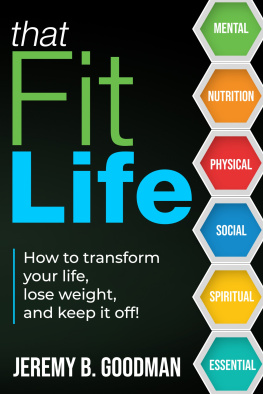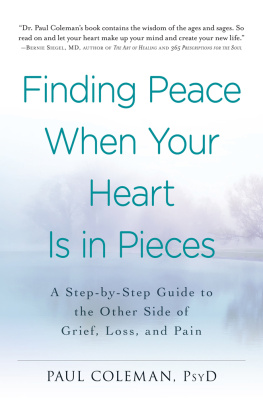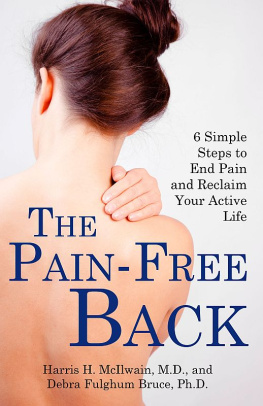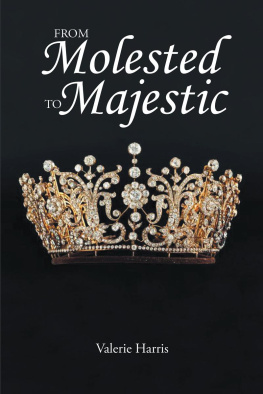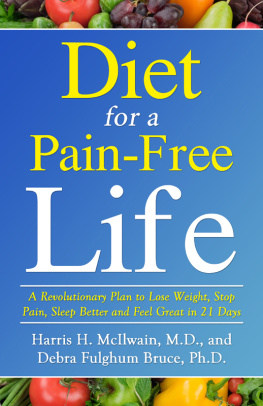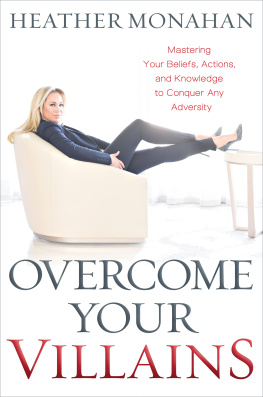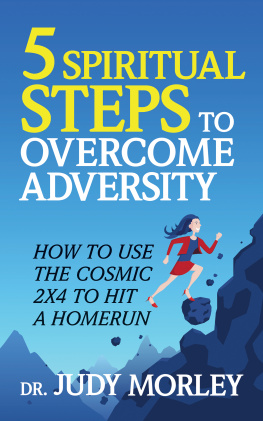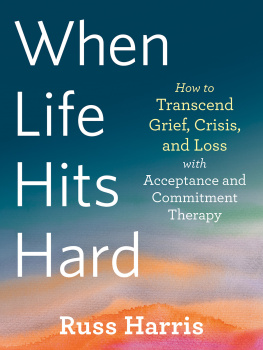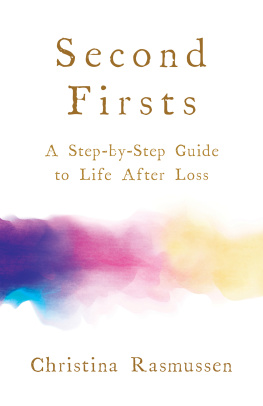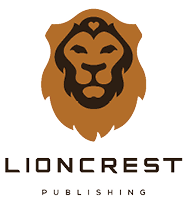Copyright 2019 Adell J. Harris
All rights reserved.
To my mother, Joretta Allen Harrisyour spirit lives in my work, and my love for you grows stronger every day.
Introduction
Throughout my life, I have faced adversity. Ive experienced pain, loss, and trauma. At times, my pain threatened to define not only my life but who I was as a person. But, by following the steps I outline in this book, I was able to embrace my adversity and rewrite my story.
My Story
Lets begin at the end. It was June 6, and the year was 2014. It was a hot day in my hometown of High Point, North Carolina, also known as the furniture capital of the world and home to about 100,000. I was standing in my mothers bedroom, in the childhood home Id been raised in. The windows were open but creating zero breeze. Sweat poured down my back and my face as I tossed completely full, ninety - gallon - sized trash bags out her second - floor window, bag after bag. I was alone. I was exhausted. I was angry. I was sad. With every toss, my emotions grew stronger and stronger. This was the hardest thing Id ever experienced.
Earlier that day, wed celebrated my mothers sixty - two years of life and laid her physical body to rest. Just four days prior, the woman who knew and loved me first, Joretta Allen Harris, had lost her battle with diabetes. I was overwhelmed with emotion and grief. I was also caught off guard by all the responsibility that death leaves for the closest of kin. I selected the last dress that she would wear, the casket that would encase her body, and the words for her obituary, and now, I was cleaning out every inch of the house that shed lived in for thirty - plus years. It had been a long four days. It had actually been a long two and a half years, as my mother had lived her final years in poor health.
I had been going one hundred miles per hour, taking care of this and that. The intensity of the moment was coming to a head. Tears began to well up as I rested my hands on my knees, as a tired athlete does. I began to speak out loud.
Where are all the people who lived here? Where is my brother? How am I here by myself?
After my brief pity party, I asked a question that changed my life: What is this here to teach me?
I then began to open myself up to the benefits of the moment. Of everyone who could be doing this, why not me? I thought. Maybe I needed to be the one cleaning out this house, standing in my mothers bedroom, throwing bags of trash out the window. It was symbolic. This was the endof so many things. This was the end of hospital rooms, nursing homes, dialysis, and sickness. This was the end of physical moments with my mom. This was the end of the pain, hate, and anger that I associated with this house. Acknowledging this allowed me to release these emotions, which brought me a sense of peace. This experience was intense, and I knew I never wouldve done it willingly. I wouldnt have found myself in that house in that situation if circumstances hadnt forced me there, but I was supposed to be there. By cleaning out that house, I was cleansing my spirit, too.
I was adopted at three months old, and my adoptive parents divorced when I was three. My adoptive father largely dropped out of my life at that point. He always paid his child support, and I did see him occasionally on holidays and special occasions, but he didnt play the role of loving, present father. Today, I have no relationship with him. I dont think he meant to hurt me in the ways he did. I believe that he, like everyone in this world, was doing the best he could. But fatherless children live a different reality, and his absence has irrefutably changed my life.
My adoptive mother was tough, the epitome of an alpha woman. She had good intentions with everyone she met. She was a helper that gave more than she got. Like a lot of parents in the 80s, she led using fear and had no problem dropping the hammer. I know my mother loved me, but growing up, it was hard for me to understand it. Love can be complex. She constantly pointed out my shortcomings, flaws, and faults. My hair wasnt done. I smelled bad. I ran my mouth too much. My teeth were yellow. I struggled in math. I dressed sloppy. I wasnt as smart as my brother. Her delivery was aggressive and sometimes physical. I interpreted this to mean that I wasnt good enough. She probably thought she was being helpful, showing me the things I could improve on. She never taught me how to do these things differently, though, so she came across as a bully. Her disapproval affected my self - image and confidence. I desperately wanted her approval and love.
She had to be both father and mother to me, and perhaps I expected even more of her because of that. With being adopted, having no father, and feeling unloved, I was constantly seeking attention. Children want to feel loved by their parents. I was no different.
My mother remarried four times after my father, but none of those men were father figures. My mother was very religious, and she always told me that having sex before marriage was a sin. So, if she was going to have sex with a man, she had to marry him first. This is how people use religion to support their dysfunctional behavior. Five husbands, no fathers? This ratio would eventually have a negative impact on our relationship.
My mothers second husband was an evil and disgusting human being. I dont use those words lightly. He used to beat my brother and me with extension cords, usually for forgetting to add sir or maam to the end of a response. Beyond the strict rules and discipline, his presence changed my life forever when he decided to touch me inappropriately and expose himself during one of my evening baths. He never should have been in our home in the first place. He and my mother had separated, but she allowed him to continue living with us for a short time. He moved out of her bedroom to a bedroom across the hall from mine, which meant he and I began sharing a bathroom. I was eight years old with a secret.
Throughout my childhood, starting when I was nine, my mother fostered dozens of kidsat least fifty. Our house was filled with young people separated from their families, kids all too familiar with pain, disappointment, rejection, abuse, anger, and sadness. The first five kids became like family to me. I called them my brothers and sisters, and they lived with us until they were eighteen. Once they phased out of the system, I never saw them again. One day they were my sister or brother, and the next, they were out of our house and out of my life forever. This was when I began to build protective walls in my relationships, as I realized that if I never got close to people, I couldnt be affected by their departure.
Early on, my mother would foster one child, then two, then three, four, and five. By the time I was in high school, our house began to feel less like a foster home and more like a group home, with as many as five to eight young boys at any given time. My mom would take in anyone, including those who acted out or who had been kicked out of other foster homes. Just like me, these kids had their own sadness, trauma, and toxic behaviors. I grew immune to the process, and in my last three years at home, every new child was a stranger; I had no desire to build any new relationships. My mother worked two jobs and was hardly home. I was greatly outnumbered with no one to protect my space or me. I remember having to buy an exterior lock for my bedroom door to protect my things while I wasnt home. My things were still stolen. This too would cause a divide in my relationship with my mother.

